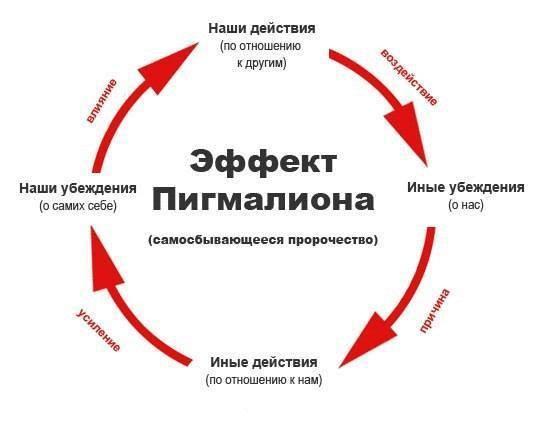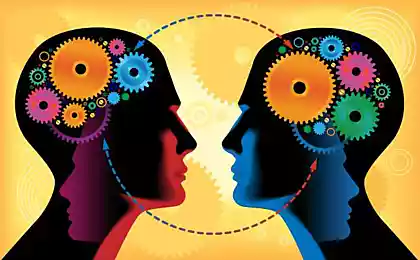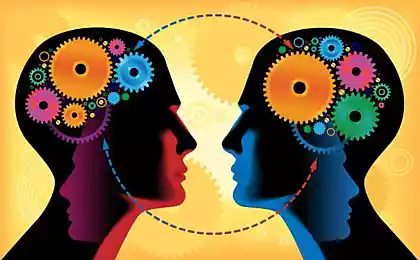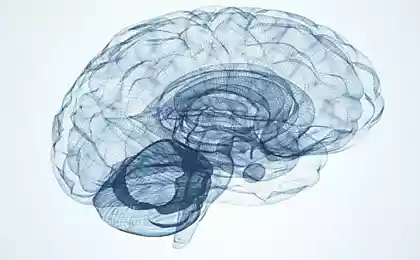433
The Pygmalion Effect
Rosenthal effect (Pygmalion effect).
This phenomenon lies in the fact that the wait person the prophesy largely determines the nature of its actions and the interpretation of the reactions of others, which provokes the fulfillment of prophecy.

The name of this effect associated with an ancient legend. The mythical king of Cyprus, Pygmalion created a statue of a beautiful woman, and he fell in love with her. Passionate pleas, he was moved to pity of the gods, and they revived the woman. Since then, this image symbolizes the life-giving effect caused by sincere faith and persistent desire.
The American psychologist Rosenthal (1966) has called the Pygmalion effect, the phenomenon consisting in the fact that a person is firmly convinced of the loyalty of some information, involuntarily behaves she gets actual confirmation.
In 1968, Rosenthal and Lenore Jacobson conducted an experiment in which children are involved one school in San Francisco.
The essence of the experiment was to test the level of intelligence of students. In the experiment, the psychologists took several students who, in their opinion, he had outstanding intellectual abilities.
Teachers were surprised with the choice of psychologists, as the chosen students did not show any special mental abilities. But psychologists said: "If children are not said about themselves, their intellectual potential in the future will be revealed!".
It turned out that the psychologists chose students with high IQ is completely random. But surprisingly, when Rosenthal and Jacobson came to the end of the year in school in order to measure the intelligence quotient of the students, they found that those children, whom they chose in the beginning of the year, as possessing high intellectual abilities, and showed the highest level of IQ.
As argued by Rosenthal and Jacobson, they were able to demonstrate the influence of expectations of teachers on the learning progress of the students.
Apparently, the authors, when teachers expect of children of high intellectual achievements, they begin to behave towards them more friendly, seeking to encourage them and use several different teaching methods, allowing a greater degree of freedom in their cognitive and creative activity.
All this helps to improve learning, since children's ideas about themselves, their own expectations, motivation and cognitive style change for the better.
However, subsequent experiments did not reveal a clear correspondence of results of experiments of the expected effects. Pedagogical program that uses an enabling environment does not always give a positive effect.
Another example of this effect is associated with the first impression of people from each other.
Self-fulfilling prophecy can lead to sympathy. Rebecca Curtis and Kim Miller illustrated this process and conducted the following experiment.
A group of College students, none of whom was familiar between them, broken into pairs. One person in each pair randomly selected, received special information. Some of the students in the pair reported that they like their partner, and some you don't.
Then pairs of students were given the opportunity to meet and talk with each other. As predicted by the researchers, those students who believed that love partner, behave nicer towards the partner; they were more openly expressed less disagreement on the discussed topics and in General, their manner of communication was more intimate and enjoyable than students who didn't think like his partner.
Moreover — those who believed that they like partner really liked him much stronger than those who believed that the partner feels for him antipathy. In short, the partners showed a tendency to copy the behavior of another person in a pair.published
P. S. And remember, just changing your mind - together we change the world! ©
Source: www.facebook.com/cross.club.ru/photos/a.541643922531840.137820.232989140063988/1066575790038648/?type=1&theater
This phenomenon lies in the fact that the wait person the prophesy largely determines the nature of its actions and the interpretation of the reactions of others, which provokes the fulfillment of prophecy.

The name of this effect associated with an ancient legend. The mythical king of Cyprus, Pygmalion created a statue of a beautiful woman, and he fell in love with her. Passionate pleas, he was moved to pity of the gods, and they revived the woman. Since then, this image symbolizes the life-giving effect caused by sincere faith and persistent desire.
The American psychologist Rosenthal (1966) has called the Pygmalion effect, the phenomenon consisting in the fact that a person is firmly convinced of the loyalty of some information, involuntarily behaves she gets actual confirmation.
In 1968, Rosenthal and Lenore Jacobson conducted an experiment in which children are involved one school in San Francisco.
The essence of the experiment was to test the level of intelligence of students. In the experiment, the psychologists took several students who, in their opinion, he had outstanding intellectual abilities.
Teachers were surprised with the choice of psychologists, as the chosen students did not show any special mental abilities. But psychologists said: "If children are not said about themselves, their intellectual potential in the future will be revealed!".
It turned out that the psychologists chose students with high IQ is completely random. But surprisingly, when Rosenthal and Jacobson came to the end of the year in school in order to measure the intelligence quotient of the students, they found that those children, whom they chose in the beginning of the year, as possessing high intellectual abilities, and showed the highest level of IQ.
As argued by Rosenthal and Jacobson, they were able to demonstrate the influence of expectations of teachers on the learning progress of the students.
Apparently, the authors, when teachers expect of children of high intellectual achievements, they begin to behave towards them more friendly, seeking to encourage them and use several different teaching methods, allowing a greater degree of freedom in their cognitive and creative activity.
All this helps to improve learning, since children's ideas about themselves, their own expectations, motivation and cognitive style change for the better.
However, subsequent experiments did not reveal a clear correspondence of results of experiments of the expected effects. Pedagogical program that uses an enabling environment does not always give a positive effect.
Another example of this effect is associated with the first impression of people from each other.
Self-fulfilling prophecy can lead to sympathy. Rebecca Curtis and Kim Miller illustrated this process and conducted the following experiment.
A group of College students, none of whom was familiar between them, broken into pairs. One person in each pair randomly selected, received special information. Some of the students in the pair reported that they like their partner, and some you don't.
Then pairs of students were given the opportunity to meet and talk with each other. As predicted by the researchers, those students who believed that love partner, behave nicer towards the partner; they were more openly expressed less disagreement on the discussed topics and in General, their manner of communication was more intimate and enjoyable than students who didn't think like his partner.
Moreover — those who believed that they like partner really liked him much stronger than those who believed that the partner feels for him antipathy. In short, the partners showed a tendency to copy the behavior of another person in a pair.published
P. S. And remember, just changing your mind - together we change the world! ©
Source: www.facebook.com/cross.club.ru/photos/a.541643922531840.137820.232989140063988/1066575790038648/?type=1&theater
Su-Jok therapy: heal yourself without needles and pills
Smart home generates more electricity than he uses























